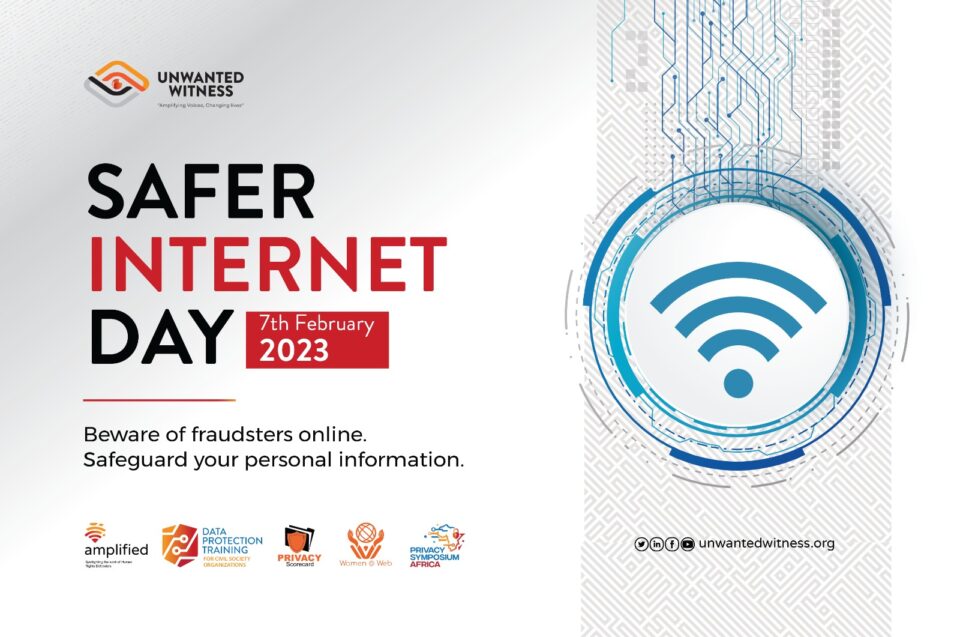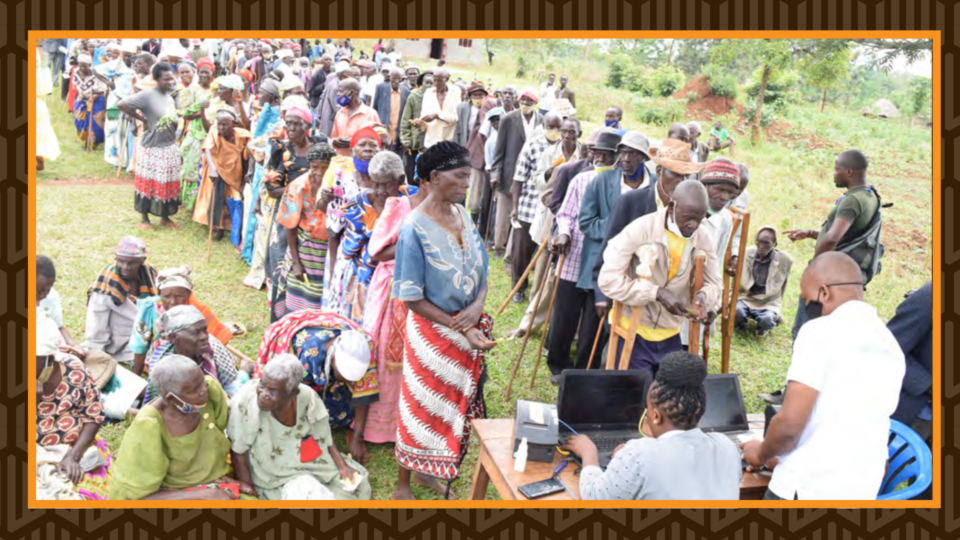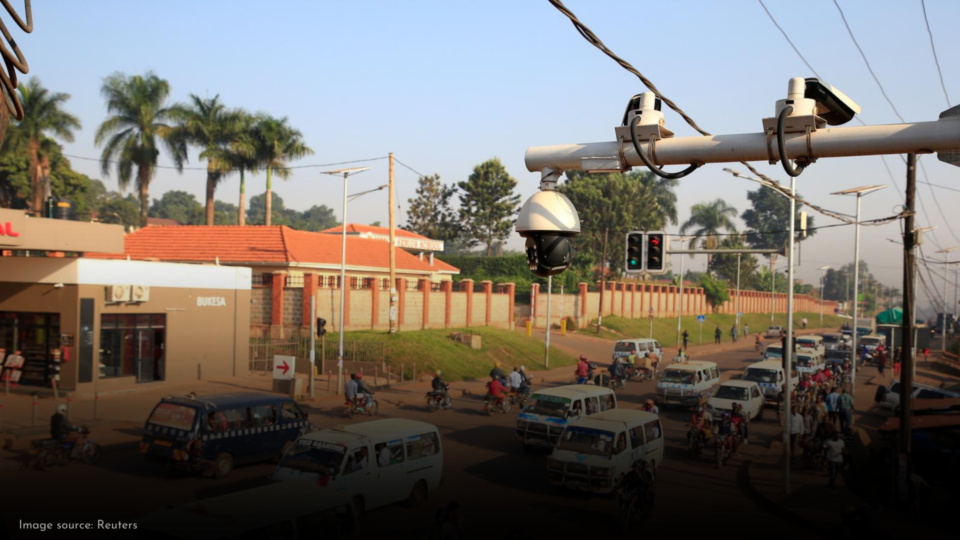World Internet Freedom Day, 2016

Harassment of online activists and use of unfriendly cyber laws are curtailing online freedoms in Uganda – says the Unwanted Witness Uganda
Kampala, 18TH/Jan/2016; As Internet users around the world commemorate the Internet freedoms day 2016, an online activist Charles Rwomushana is appearing before police to answer charges of criminal libel and promoting sectarianism for freely expressing an opinion online.
Rwomushana was first kidnapped and detained incommunicado for seventy-two (72) hours at the Kireka based Special Investigations Unit of Uganda Police Force (UPF) before putting him under house arrest for unspecified period of time.
He’s being accused of publishing a corpse photo on Facebook that allegedly belonged to Christopher Aine who was an aide to presidential candidate Amama Mbabazi. Aine had been announced missing for four weeks and his family claims that he (Aine) was picked in late December 2015 from his home in Kyanja, a Kampala Suburb by people in police uniforms.
The year under review, we also witnessed another online activist Shaka Robert who was arrested, detained and charged with offensive communication under the computer misuse Act. He’s currently reporting on court bail.
“This is a sad moment for these new platforms and we believe that these actions by government are intended to create fear and scare off Internet users yet Internet is currently regarded as independent dashboard of ideas in Uganda,” says Jeff Wokulira Ssebaggala, the Chief Executive Officer of the Unwanted Witness.
He added that threats targeting online platforms continue to be facilitated by both colonial laws especially the Penal Code, security laws like the Anti Terrorism Act and the newly enacted unfriendly cyber laws such as the Regulation of interception of communication’s Act 2010, Computer misuse Act and Uganda Communication Regulatory Authority Act and the anti pornography act among others.
As we mark this year’s Internet Freedom Day, we take stock of a number of unpleasant online violations that have impacted Internet freedoms in Uganda. These incidents include;
- Social Media legislation; during the year, government proposed to enact a law regulating the use of social media in Uganda. The ministry of internal affairs proposed the legislation and one of its intentions is to control the use of social media. We fear that this law would further stifle online expressions. Unwanted Witness condemns government’s approach of control and believes the country has enough cyber laws and what is needed is bridging rural- urban digital divide, improve internet band width, strengthen the national backbone and making internet affordable by lowering rates.
- Illegal Surveillance; government has through classified and supplementary budgets been able to procure surveillance equipment. The equipment we understood was aimed at operationalizing the Regulation of Interception of Communication’s Act 2010. In October 2015, a report titled ‘For God and My President’ was released by Privacy International detailing how the government procured an intrusion malware called Finfisher. The malware according to the report was planted into the Wi-Fi of several hotels in Kampala, Entebbe and Masaka to illegally spy on targeted activists, opposition politicians and journalists.
The Unwanted Witness is opposed to government’s illegal use of surveillance intrusion malware as such acts are aimed at undermining citizens’ right to privacy especially in communication. We demand that parliament immediately amend the Anti Terrorism Act, which grants government powers to carryout secret surveillance without subjecting it to judicial oversight process.
- Failure to pass the privacy and data protection Bill 2014: In the absence of such a law personal information/data collected during the mandatory SIM Card registration and the National IDs is bound to be misused. The absence of a privacy and data protection law means the inability by citizens especially HRDs and activists to enforce the right to privacy as enshrined under Article 27 of the 1995 Constitution of the Republic of Uganda. We have witnessed breaches in the current electoral process where Telecoms shared subscribers’ information/data with politicians and political parties. A case in point is MTN Uganda shared its 10 million subscribers data with the ruling party National Resistance Movement (NRM)’s Tuonge Communication Center to campaign on people’s phones and solicit votes for its candidate President Yoweri Museveni through sending unsolicited messages.
The Unwanted Witness retaliates its demands to the Uganda communication Commission to immediately investigate and take punitive measures against MTN Uganda if found liable and also make findings public.
The above environment provides us with an understanding of the state of Internet freedoms in Uganda and provides us opportunity to continue engaging government to improve the sector. This should be recognized as it provides us with remembering the internet`s “incredible contributions to freedom, justice, and transparency.”
We further recognize that the Internet is a crucial medium not just for personal communication or news and information, but it increases political participation and civic engagement especially as Uganda prepares for the general elections. The struggle for Internet freedom is consequently inseparable from the struggle for freedom of every kind.
Jeff Wokulira Ssebaggala
For more information contact;
THE UNWANTED WITNESS
Plot 41 Gadaffi Road, Makerere- Kampala
P. O. Box 71314 Clock Tower K’la
Telephone: +256 414 697 635
Email: info@unwantedwitness.or.ug
Website: www.unwantedwitness.or.ug
Skype: unwantedwitness
Twitter: @unwantedwitness
Face book: Unwantedwitness-Uganda




